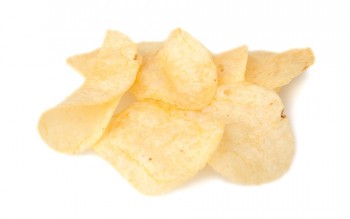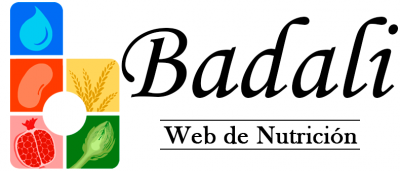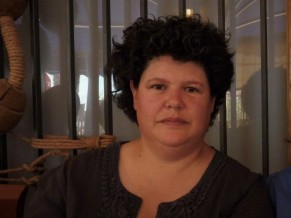BADALI
| Responsible | Ana Belén Ropero Lara |
| Website | https://badali.umh.es |
| @BADALINutricion | |
| Badali Nutrición |
RESEARCH SUMMARY
The BADALI group studies the nutritional composition and other nutritional characteristics of foods present in the Spanish market. These foods are included in the Food Database, BADALI, available in open access on the web https://badali.umh.es. This database contains more than 4200 foods for which the nutritional composition and various elements of analysis are provided. These include a Nutritional Traffic Light, the specific Nutritional Assessment for each food and the analysis of the so-called Nutritional and Health Declarations that manufacturers make for their products.
RESEARCH LINES
Line1: Study of the nutritional quality of foods on the Spanish market
The great development of the food industry in recent decades has brought an enormous amount of processed products to the market. The nutritional quality of these products is questioned, since most of them contain ingredients that worsen their nutritional composition. It is essential to analyze this nutritional quality in order to know the market to which the Spanish consumer is exposed, given that he/she has little knowledge of nutrition that would allow him/her to make an adequate choice of food.

Processed products
Line 2: Study of the salt content of foods
High salt intake is a risk factor for hypertension and for cardiovascular diseases such as ischemic heart disease or heart failure. The World Health Organization lists among the most cost-effective interventions in its 2018 “Saving Lives, Reducing Waste” report, that “reducing salt intake by reformulating food products to contain less salt and by setting target levels for salt content in foods.” Most salt consumption is from processed products. It is therefore essential to know the salt content of these products.

Example of products with high salt content
E. Sala, C. Vived, J. Luna Júlia, N.A. Saavedra-Ávila, U. Sengupta, A.R. Castaño A., S. Villar-Pazos, L. Haba, J. Verdaguer, A.B. Ropero, T. Stratmann, J. Pizarro, M. Vázquez-Carrera, A. Nadal, J.M. Lahti, C. MoraEster
CDK11 Promotes Cytokine-Induced Apoptosis in Pancreatic Beta Cells Independently of Glucose Concentration and Is Regulated by Inflammation in the NOD Mouse Model
Frontiers in Immunology 1664-3224 (2021).
M. Beltrá, F. Borrás, A. B. Ropero
Sodium Content of Foods Sold in the Spanish Market. Results from the BADALI Project.
Nutrients,13(10):3410 (2021).
E. Sala, C. Vived, J. Luna, N. A. Saavedra-Ávila, U. Sengupta, A. R. Castaño, S. Villar-Pazos, L. Haba, J. Verdaguer, A. B. Ropero, T. Stratmann, J. Pizarro, M. Vázquez-Carrera, A. Nadal, J. M. Lahti, C. Mora.
CDK11 Promotes Cytokine-Induced Apoptosis in Pancreatic Beta Cells Independently of Glucose Concentration and Is Regulated by Inflammation in the NOD Mouse Model.
Frontiers in Immunology 12, 634797 (2021).
A. B. Ropero, N. Blain, M. Beltrá
Nutrition Claims Frequency and Compliance in a Food Sample of the Spanish Market: The BADALI Study
Nutrients, 12(10), 2943 (2020).
M. Beltrá, K. Soares-Micoanski, E.M. Navarrete, A. B. Ropero
Nutrient Composition of Foods Marketed to Children or Adolescents Sold in the Spanish Market: Are They Any Better?
Int. J. Environ. Res. Public Health, 17(20), 7699 (2020).
A. B. Ropero, E. Marquina, V. M. Sarmiento, M. Beltrá
BADALI: Una herramienta de promoción de la salud
Revista Española de Nutrición Humana y Dietética, 21(4): 335 – 350 (2017).
Feasibility study for the development of a PPP to improve the nutrition of the population. Duration: 01/01/2020 – 28/02/2021.
PI: A.B. Ropero
Minor contract for the implementation of the program to improve eating habits in the school environment of infant and primary school of the CEIP of Ibi. Duration: 29/01/2020 – 30/06/2020.
PI: A.B. Ropero
Light sheet fluorescence microscopy unit of the Institute of Bioengineering. Funding agency: Generalitat Valenciana. Duration: 01/01/2018 – 31/03/2020.
PI: J.M. Pérez, J. Barril, H. Candela, J. Esteban, J. Estévez, S. Jover, A. Martinez-Laborda, J.L. Micol, M.C. Pellín y M.R. Ponce
Together for healthy and sustainable nutrition. Funding agency: University of Elche (UMH). Duration: 01/01/2019 – 31/12/2019.
PI: A.B. Ropero
We are what we eat?. Funding agency: University of Elche (UMH). Duration: 01/01/2019 – 31/12/2019.
PI: A.B. Ropero
Other Publications
- El 97% de los alimentos dirigidos a niños no son saludables. Ana B. Ropero. Marta Beltrá. The Conversation. 2020.
- Alimentos para adelgazar y otros falsos milagros. Ana B. Ropero. The Conversation. 2020.
- ¿Es malo el azúcar? Todo depende de sus apellidos. Ana B. Ropero. The Conversation. 2020.
- La fibra no es mágica, pero sí saludable (sobre todo en confinamiento). Ana B. Ropero. The Conversation. 2020.
- Confinamiento y vitamina D: ¿qué pasa si no nos da el sol? Ana B. Ropero. Marta Beltrá. The Conversation. 2020.
- Instrucciones para diseñar el menú de confinamiento. Ana B. Ropero. The Conversation. 2020.
- Eleven opinion columns in Diario Información throughout the years 2012 to 2017.
- Esto es lo más parecido que existe a un ‘alimento milagro’ Ana B. Ropero. The Conversation España (2021).
- ¿Cuál es el interés de la carne artificial? Ana B. Ropero. The Conversation España (2021).
- ‘Light’, ‘sin azúcar’ o ‘sin grasa’: la letra pequeña de los alimentos. Ana B. Ropero, Marta Beltrá. The Conversation España (2021).
- El bulo de las dietas ‘detox’. Ana B. Ropero. The Conversation España (2021).
- ¿Cuál es el interés nutricional de la carne artificial? Ana B. Ropero. The Conversation España (2021).
- Esto es lo más parecido que existe a un ‘alimento milagro’. Ana B. Ropero. The Conversation España (2021).
- Motivos para beber agua, incluso sin sed. Ana B. Ropero. The Conversation España (2021).
- Reducir la sal de nuestra dieta a la mitad salvaría millones de vidas. Ana B. Ropero. Fernando Borrás. Marta Beltrá. The Conversation España (2021).
- Sin azúcares añadidos: cuándo tiene sentido usar esta etiqueta y cuándo no. Ana B. Ropero. Marta Beltrá. The Conversation España (2021).
- ¿Alimentos afrodisíacos? Ya nos gustaría. Ana B. Ropero. The Conversation España (2022).
- Lo que debemos comer (y lo que no) para prevenir la depresión. Ana B. Ropero. The Conversation España (2022).
- Voici comment notre alimentation peut prévenir – ou aggraver – les risques de dépression. Ana B. Ropero. The Conversation España (2022).
Social Communication of Science
- Base de Datos de Alimentos y web de Nutrición (Food Database and Nutrition Website) – BADALI (https://badali.umh.es)
- Danone Institute Award for Journalistic Scientific Dissemination – 21st Call for Awards on food, nutrition and health. 2014. Ana Belén Ropero.
- Blog “Hormonas“
- UMH Radio programs “The Science of the Human Body” and “The Science of Our Life”. 2013-2016.
“Onda Universitas”. Radio Nacional de España, Radio 5.Jornadas Organizadas
- “Fruits, vegetables and greens. Health in colors”. Day “A menjar sa”. Elche, 17 June 2019. Organized by the Institut Valenciá de Investigació i Formació Agroambiental.
- Participation in 3 editions of the Science and Technology Fair in Elx. Organized by the University Miguel Hernández.
- Speaker at “New foods, food products and nutraceuticals: novelties that are here to stay”. Orihuela, 16 March 2017.
- Speaker at “Novel foods, food products and nutraceuticals: novelties that are here to stay”. Alicante, 13 October 2016.
- Science with Tapas. IBMC. Miguel Hernández University. Ana Belén Ropero.
- Three editions of the “Nutrition Day”. 2013/14 a 2015/16. Miguel Hernández University.
- Celebration of the “National Nutrition Day 2013” at the Miguel Hernández University.



